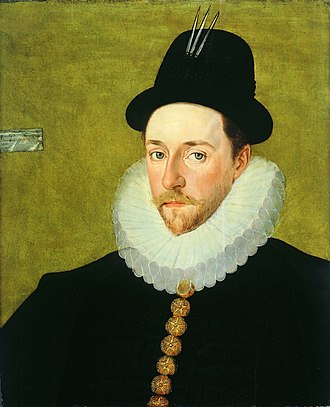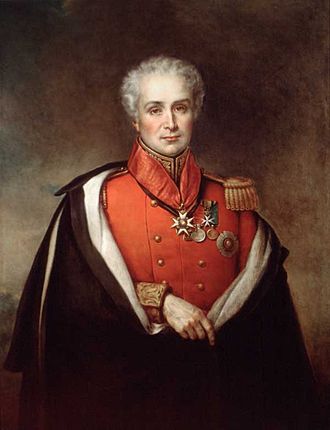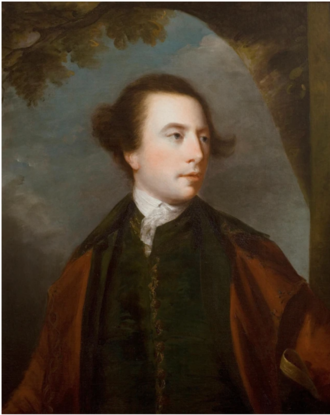Discover Your Roots
SIGN UPDiscover Your Roots
SIGN UPPeregrine is a gender-neutral name of Latin origin, meaning "Wanderer." The name has been associated with various references in the arts, including a satire by Lucian and a song by Donovan. In the realm of biology, it is linked to a species of bird of prey, a flowering plant, and several other organisms. Additionally, the name has been used by several companies and in the context of transportation. Notably, it has been associated with a British ship and a lunar lander mission. In other uses, it has been connected to a Canadian military operation, astrology, a British racehorse, and a Roman designation. Peregrine holds historical and cultural significance, with references in literature, biology, and various other domains.

Peregrine Andrew Morny Cavendish, 12th Duke of Devonshire, also known as "Stoker", is an English peer and the owner-occupier of Chatsworth House and large estates in Derbyshire, North Yorkshire, and Ireland. Born on April 27, 1944, at Chatsworth House, he is the only surviving son of Andrew Cavendish, 11th Duke of Devonshire, and Deborah Mitford. Educated at Eton College, Exeter College, Oxford, and the Royal Agricultural College, he has a rich history in horse racing, serving as Her Majesty's Representative at Ascot and chairman of Ascot Racecourse Ltd. His interests extend to the arts, as he is a trustee of the Wallace Collection and Sheffield Galleries and Museums Trust, and chairman of the Devonshire Arms Hotel Group and deputy chairman of Sotheby's. The Duke is known for his collection of modern British and contemporary art displayed at Chatsworth House. He is also a patron of St Wilfrid's Hospice in Eastbourne and has provided a Swaledale Ram as a mascot to the Mercian Regiment. The Duke married Amanda Carmen Heywood-Lonsdale in 1967, and they have three children. The Duke and Duchess are actively involved in the operation of Chatsworth House as a tourist attraction. Additionally, the Duke is close to the British royal family and has attended significant royal events.

Peregrine White (b. 1620 – d. 1704) holds the distinction of being the first English child born to the Pilgrims in America. Born on the Mayflower during its historic voyage, Peregrine played a significant role in the early days of Plymouth Colony. His parents, William and Susanna White, along with his brother Resolved and two servants, embarked on the Mayflower in 1620. Peregrine's birth took place while the ship was anchored at Cape Cod, and he went on to become a notable figure in Plymouth Colony, involved in both military and government affairs. Following the death of his father, Peregrine's mother remarried Edward Winslow, a prominent figure in the colony. Peregrine's contributions extended beyond his military service to farming and community representation. His life exemplifies the resilience and fortitude of the early settlers in the face of challenging circumstances. Peregrine White's enduring legacy is a testament to the enduring spirit of the Pilgrims and their enduring impact on American history.

Peregrine Bertie, 13th Baron Willoughby de Eresby (12 October 1555 – 25 June 1601), inherited the title from his mother, Katherine Willoughby, 12th Baroness Willoughby de Eresby. Born in Wesel, on the River Rhine, due to his parents' exile from England, he became English in 1559. In 1577/78, he married Mary de Vere, daughter of John de Vere, 16th Earl of Oxford. Following his mother's death in 1580, Bertie succeeded her barony and entered the House of Lords. As a diplomat and soldier, he was commissioned for various missions, including escorting the Duke of Anjou and negotiating with the Danish king for English merchant ships' safety. Bertie also served in the Netherlands under Robert Dudley, 1st Earl of Leicester, and later fought for the Huguenots under Henry of Navarre. His final appointment was as the Governor of Berwick upon Tweed on the Scottish border. Bertie passed away in 1601 at the age of 45. He married Mary de Vere, and they had seven children. Celebrated in the popular ballad "Lord Willoughby's Welcome Home," Bertie's military career left a lasting legacy.References:Nelson, A. H.: Monstrous Adversary: The Life of Edward de Vere, 17th

General Sir Peregrine Maitland, GCB (6 July 1777 – 30 May 1854), was a distinguished British soldier, colonial administrator, and first-class cricketer. Maitland's military career was marked by his service in various battles, including the Peninsular War, Battle of Waterloo, and the Walcheren in 1809. His exceptional leadership and bravery led to numerous honors and awards, including being appointed as a Knight Commander of the Order of the Bath (KCB) for his service at Waterloo.In addition to his military achievements, Maitland held several significant administrative positions, such as lieutenant governor of Upper Canada, where he supported the Family Compact and proposed the establishment of the Canadian Indian residential school system. His tenure as lieutenant governor of Nova Scotia was characterized by his influential impact on Halifax's society and his efforts in dealing with immigration and settlement.Beyond his military and administrative roles, Maitland was an accomplished cricketer, making 27 known appearances in first-class cricket matches from 1798 to 1808, mainly associated with the Marylebone Cricket Club (MCC), Surrey, and Hampshire.Maitland's legacy extends to his contributions in India and the Cape Colony, where he served as commander in chief of the Madras Army and Governor of the Cape Colony. His distinguished career and significant impact on various regions have earned him respect and recognition, including being made a Knight Grand Cross of the Order of the Bath

General Peregrine Bertie, 3rd Duke of Ancaster and Kesteven, was an influential English peer born in 1714. He inherited the titles and responsibilities of his father, the 2nd Duke, in 1742, including Lord Great Chamberlain and Lord Lieutenant of Lincolnshire. Known for his military achievements, he rose through the ranks to become a General. Bertie also ventured into mining endeavors in Wales during the 1750s, engaging the services of German immigrant Diederich Wessel Linden.In his personal life, he married twice. His first wife, Elizabeth Nicoll, passed away in 1743, and he later married Mary Panton. Together, they had six children, including Robert Bertie, 4th Duke of Ancaster and Kesteven, and Priscilla Barbara Elizabeth Bertie, 21st Baroness Willoughby de Eresby. General Peregrine Bertie passed away on August 12, 1778, and was succeeded by his son Robert. After Robert's death in 1779, Peregrine's younger brother, Brownlow, took over the dukedom.General Peregrine Bertie's legacy lives on through his notable contributions to the military and his lineage, leaving a mark on English peerage.
All images displayed on this page are sourced from Wikipedia or Wikimedia Commons.We use these images under their respective Creative Commons or public domain licenses. Wherever applicable, author attributions and license information are provided. If you believe an image is used incorrectly or outside its license terms, please contact us so that we can review and correct the issue.